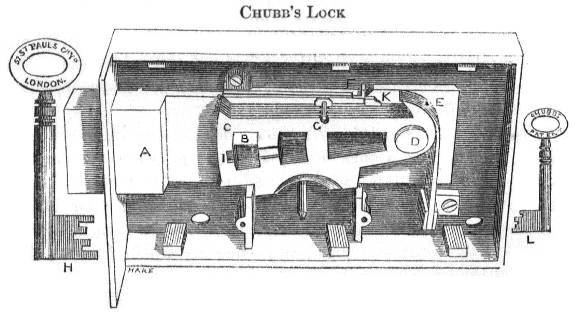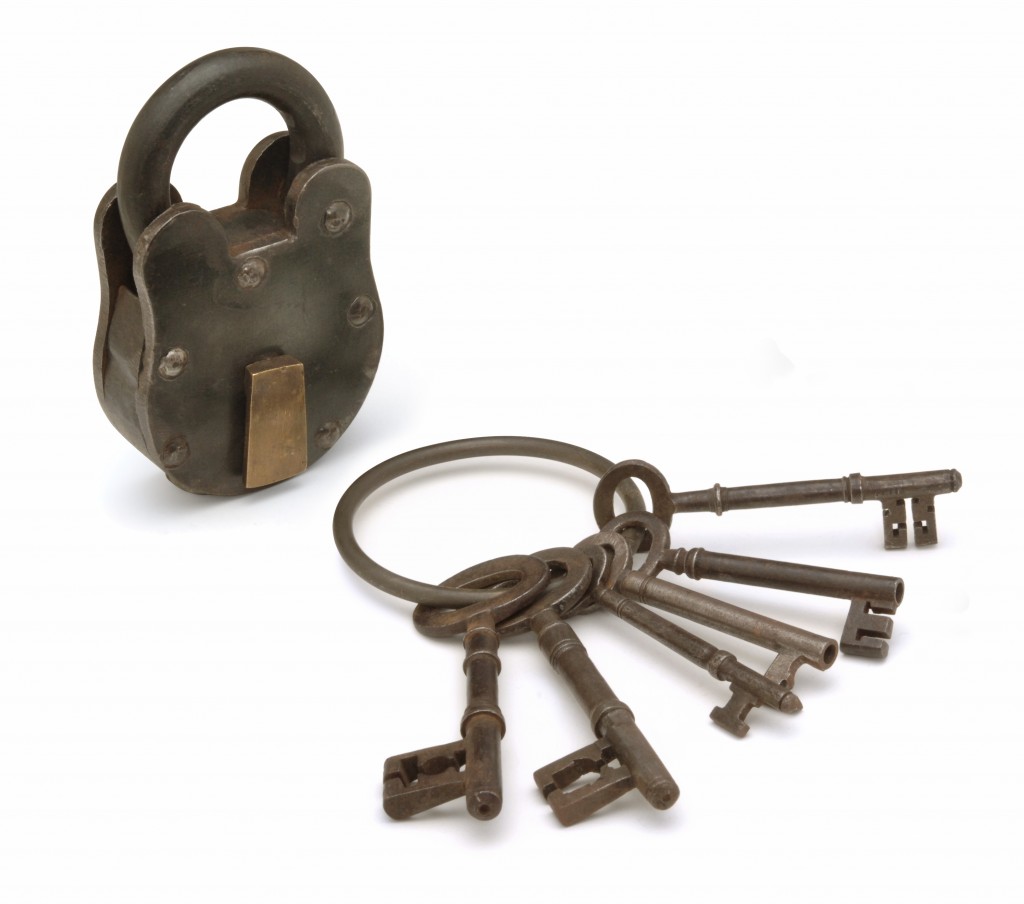In previous instalments of this series, we looked at Linus Yale Jr and Joseph Bramah; now we turn our attention to a third famous locksmith; Jeremiah Chubb. Like Linus Yale Jr, he gave his name to a type of lock which is still used to this day, and like Bramah his lock was said at the time to be unpickable.
Jeremiah Chubb
Jeremiah Chubb was born in 1793, in Fordingbridge, Hampshire. His elder brother Charles (b. 1779) was apprenticed as a blacksmith before entering business in Winchester as a ships’ ironmonger; Jeremiah joined his brother’s business, which would later branch out into lockmaking and become the famous Chubb Company.
A Robbery at Portsmouth Naval Dockyard
In 1817, a serious robbery occurred at the busy naval dockyard in Portsmouth. The perpetrators had used false keys to make their entry; the ease with which this could be done unnerved the British Government no end. It was, after all, only a couple of years since the defeat of Napoleon at Waterloo. To increase their security, they decided to offer a competition; a reward of £100 (equivalent to roughly £8,000 in today’s money) to anybody who could design an unpickable lock which could only be opened with its own key.
Jeremiah Chubb built on the earlier achievements of Robert Barron and Joseph Bramah to develop his entry in the contest; a four-lever lock with a special security feature. If anyone were to attempt to open it with the wrong key, or try to pick it, an automatic jamming mechanism would be triggered. In order to proceed, this mechanism would need to be reset with either a special regulator key or the original key, turned in a different direction.

(Image from Wikimedia Commons)
Not only did this mechanism prevent access by unauthorised users, it also meant that the owner would be alerted to the fact that the lock had been tampered with.
Testing the Lock
Of course, the lock had to be tested, and in order to ensure that the testing was done thoroughly, the Government chose a tester with an unusual incentive towards success; a convict on one of the prison hulks in Portsmouth Docks. He was a locksmith by trade prior to his conviction, had successfully picked every lock he had been presented with, and was confident he could do the same with Chubb’s lock. He was promised a free pardon from the Government for his crimes, plus £100 from Jeremiah himself, if he could do so.
After two or three months trying, he admitted defeat. Thus, Jeremiah Chubb claimed the Government’s reward and sealed his reputation.
Manufacture and Development
Off the back of this success, the Chubb brothers launched the Chubb Company, moving to Wolverhampton which was then the lockmaking capital of Great Britain. Whilst the general principles of the lock remained the same, a number of improvements were made over the years. In 1824, a new patent was issued for a version which no longer required a special regulator key to reset a tampered lock, and by 1847 they were producing six-lever versions. Another innovation was a “curtain” which would allow the key to pass into the lock but restrict the field of view, thus preventing any would-be lockpicker from getting a clear view of the levers within. They also began to produce padlocks using the Chubb lock.

The Unpickable Reputation
The reputation of the Chubb’s lock as an unpickable system was such that it was even referenced in fiction. Sir Arthur Conan Doyle used the Chubb lock as a clue for his iconic detective Sherlock Holmes, once in A Scandal in Bohemia and once in The Adventure of the Golden Pince-Nez, in both instances using the Chubb name to establish that a particular lock could not have been picked.
In fact, the Chubb lock remained entirely unpicked only until 1851, when rival locksmith Alfred Charles Hobbs, inventor of the Protector lock, managed to pick both the six-lever Chubb lock and the Bramah Challenge Lock during the Great Exhibition.
Here at AFS Security, we may not be as well known as Chubb was in his day, but we are reliable, expert locksmiths in East London. If you need security for your home or business, we will be more than happy to help. Simply contact us on 0208 471 9000 today.






